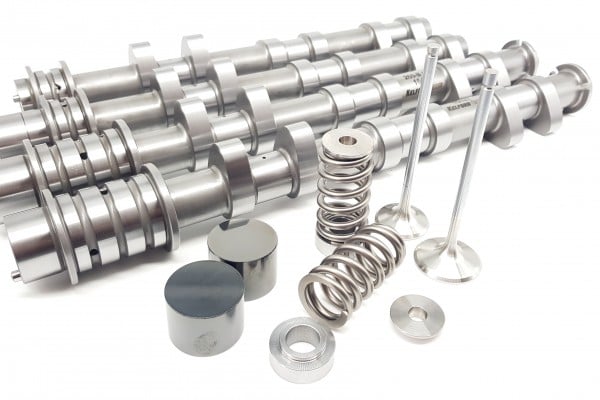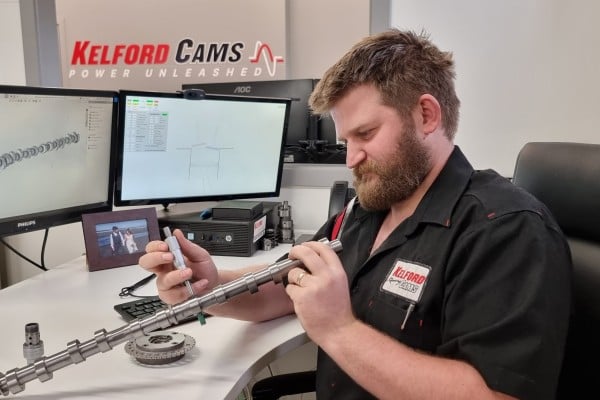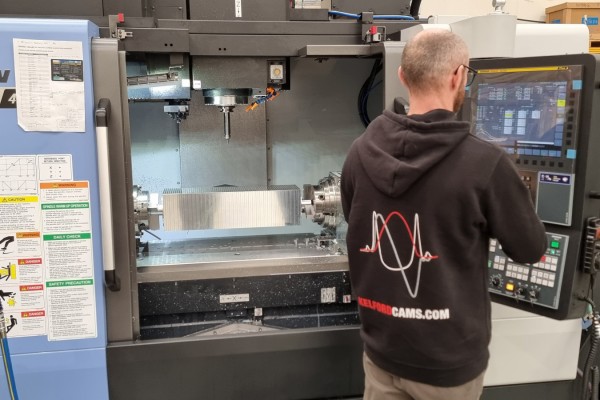Aftermarket camshafts are an obvious path to go down when you’re on the hunt for more power, but there’s a lot of misunderstanding out there when it comes to the subject. This episode of Tuned In intends to clear some of that up.
Listen on SpotifyListen on Apple Podcast
Use ‘PODCAST75’ for $75 off your first HPA course here: https://hpcdmy.co/hpa-tuned-in
Thomas Goatley of Kelford Cams sits down with us this week to dive deep into the world of performance camshafts because, while the basic concept may seem simple enough, there’s a whole lot of fascinating science and engineering that goes into camshaft manufacture and selection — and it’s all absolutely worth digging into.

Thomas starts by breaking down a huge range of cam-related terms and explains how it all really works and why each aspect matters. Expect to gain a really good understanding of lift, duration, lash, lobe separation angles, and much more.

There’s also a lot that goes into selecting the right cams, which is something that enthusiasts commonly get wrong through a lack of understanding of their own engine build, how cams actually work, or what it is they’re actually wanting. Hint — scrolling straight to the bottom of the list and ordering the biggest, baddest cams in the catalogue rarely works out well. Thomas details the common mistakes that people often make around cam selection and the best ways to avoid them.

With discussions on NA versus turbo considerations, different manufacturing method pros and cons, as well as the importance of proper break-in procedure and cam timing, this conversation is a goldmine for anyone looking to up their knowledge in the performance headwork and camshaft game.
Follow Kelford Cams here:
IG: @kelfordcams
FB: Kelford Cams
WWW: kelfordcams.com
Want to learn how to degree cams yourself? Check this out: https://hpcdmy.co/camb
![058: Choose the Right Cams for Your Build. [PODCAST]](/assets/Uploads/blog-posts/ac3383fc22/Podcast__FillWzc4MCw0MzBd.00_06_15_07.Still002.png)





Comments
No one has commented on this page yet.